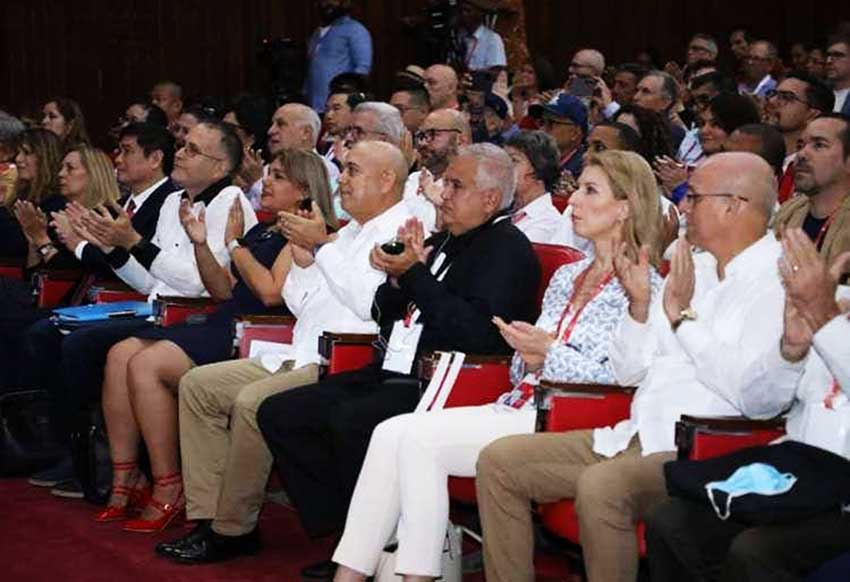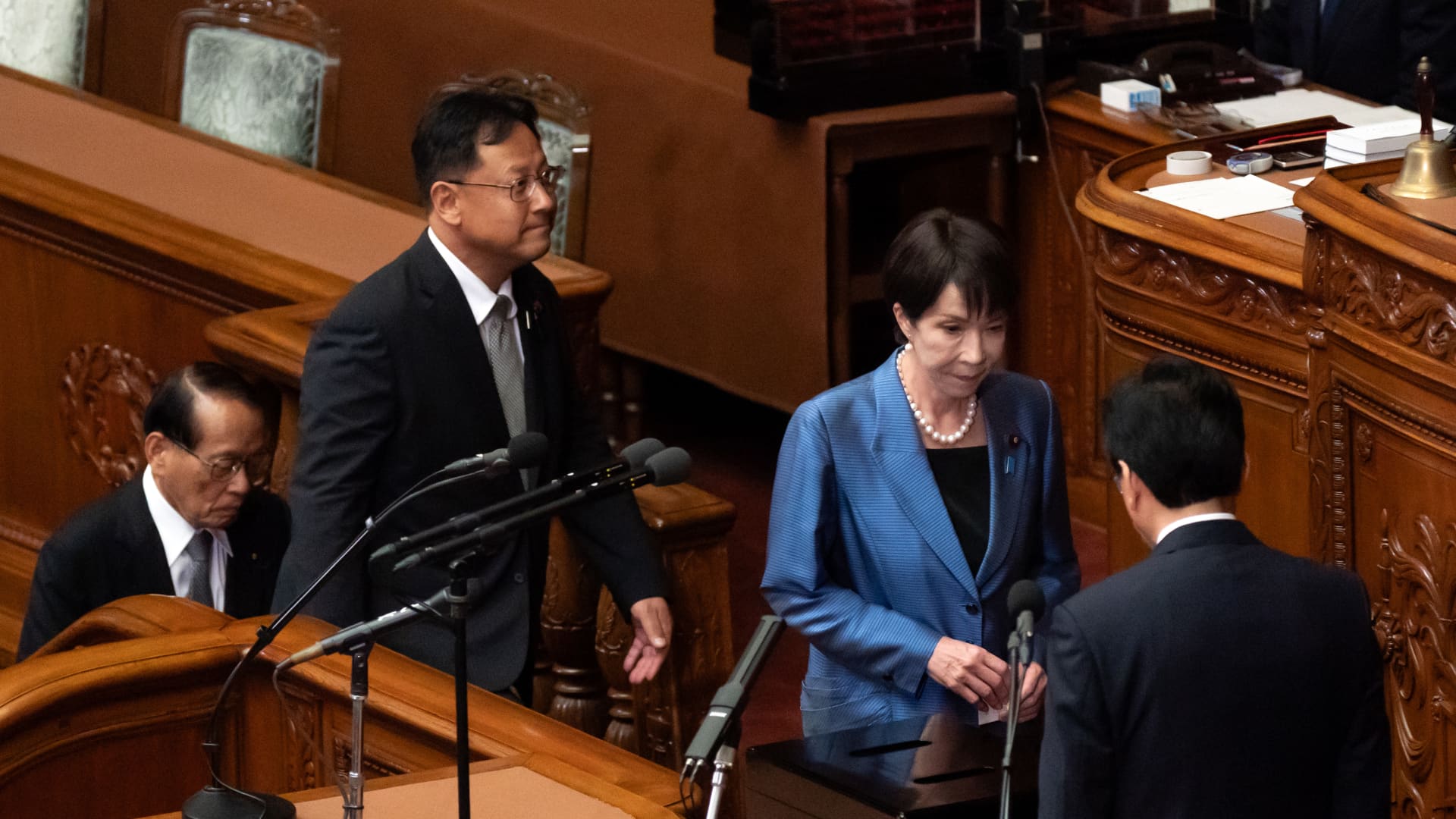Copyright thevoiceslu

At the 3rd International Conference on Theoretical Publications of Latin American and Caribbean Left-wing Parties and Movements, held at Cuba’s Nico López Party University from October 15 to 17, 2025, veteran Saint Lucian journalist Earl Bousquet delivered one of the most memorable and intellectually resonant presentations of the event — a deeply reflective address that bridged history, ideology, and the digital frontier. A Veteran’s Reflection Across Time Bousquet — a 49-year media practitioner, political activist, and lifelong student of progressive thought — used his address to connect the historic power of revolutionary communication with the technological realities of the modern era. His speech, titled “Looking Back and Ahead at the Future of Progressive Political Propaganda in the Caribbean and Latin America,” asked listeners to imagine how the great voices of liberation — Lenin, Marx, Garvey, Cheddi Jagan, Fidel Castro, and Maurice Bishop — might have reshaped the world had they possessed the instant communication tools of the 21st century. Through that lens, he invited delegates to see how revolutionary ideas once moved across mountains and borders on horseback, by word of mouth or hand-printed leaflets — and how today’s instant digital messaging could serve as both a blessing and a burden for movements seeking to enlighten rather than manipulate. The Modern Challenge: Technology, Truth, and Ideology Bousquet cautioned that Artificial Intelligence (AI) and corporate-controlled algorithms have transformed the media landscape into one where “likes” and “shares” too often substitute for meaningful thought or political engagement. He described this as a form of digital dependency — where transnational media barons shape narratives, influence global opinion, and harvest information while progressive voices struggle for visibility. In his words, “The advanced communications devices that have taken over our lives can either allow us to take the easy way out — or we can put the issues squarely on the table and identify the real challenges before arriving at quick or premature conclusions influenced more by online popularity than truth.” Building New Scaffolding for a New Era Drawing on V.I. Lenin’s 1902 concept of a revolutionary newspaper as ‘a collective organiser’, Bousquet re-interpreted the idea for today’s digital century. In the early days of the Russian Social Democratic Labour Party, Lenin had argued that a newspaper could act as the scaffolding around which an entire movement was built. Bousquet suggested that, in the age of AI and information saturation, new scaffolding is still needed — not of print, but of platforms capable of uniting progressive forces across borders while maintaining ideological clarity and human ethics. He urged progressive parties and movements to Concentrate, Innovate, Activate, and Elevate — a four-pillar strategy that emphasizes clarity of mission, technological creativity, collaboration, and collective growth. A Caribbean Voice with Global Resonance Speaking from the Caribbean perspective, Bousquet highlighted Guyana’s People’s Progressive Party (PPP) as the only regional party that has continuously published its theoretical organ, Thunder, since 1946 — a living symbol of ideological endurance. He reminded the audience that the region’s revolutionary heritage, from Garvey to Bishop, remains relevant and instructive in the current struggle against digital colonialism and information monopolies. Reclaiming the Moral Purpose of Media At the heart of his message was a moral and philosophical challenge: that the Left must not only master new technologies but also humanize them. “We cannot (and should not) kill the robots,” Bousquet declared, “but we must ensure we build our own — and feed them with humanoid brainwaves that make them think and talk in accordance with our perspectives.” His appeal was not for nostalgia, but for balance — for a media ecosystem that restores integrity, compassion, and purpose in a time of artificial noise. A Speech of Enduring Significance The significance of Bousquet’s Havana address lies in its fusion of historical wisdom and technological foresight. It was more than a reflection — it was a call to intellectual arms for the Caribbean and Latin American Left to reclaim its voice amid the algorithmic chaos of the 21st century. By invoking the moral authority of past revolutionaries and the creative potential of present-day technology, Earl Bousquet reminded his audience that the tools of communication have changed — but the struggle for truth, justice, and human dignity remains eternal. His words will likely echo in the corridors of regional journalism and political thought for years to come — a reminder that propaganda, when grounded in humanity, becomes education; when stripped of morality, becomes manipulation. ABOUT EARL BOUSQUET: Veteran Saint Lucian journalist Earl Bousquet first visited Cuba — from July 26 to August 5, 1978 — as part of the Saint Lucia delegation to the XI World Festival of Youth and Students. At the time, he was also General Secretary of the Workers Revolutionary Movement (WRM), which has established the National Preparatory Committee (NPC) to ensure Saint Lucia’s participation in the XI World Festival. Other members of the local delegation included: Lawrence Poyotte, Mario Michel, Virginia Alexander and Allan Amedee. The WRM was formally established on August 17, 1976 — and after the Cuba festival, the local delegation and other members of entities attached to the NPC decided to establish the Saint Lucia-Cuba Friendship Association (SLCFA). The WRM and the SLCFA were the first entities in Saint Lucia to secure scholarships to Cuba for Saint Lucian youth and students. The 50th anniversary of the WRM will be observed on August 17, 2026.



